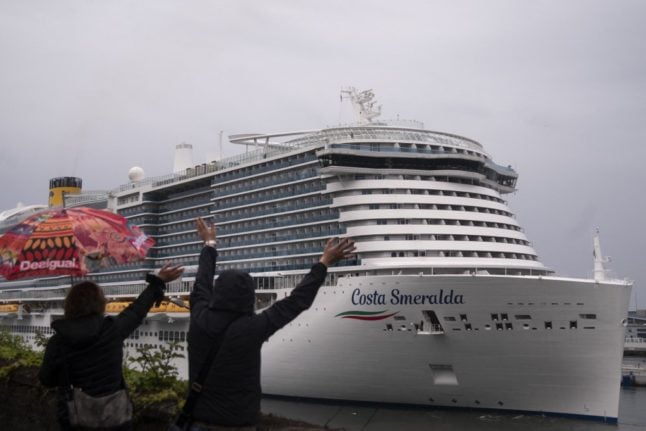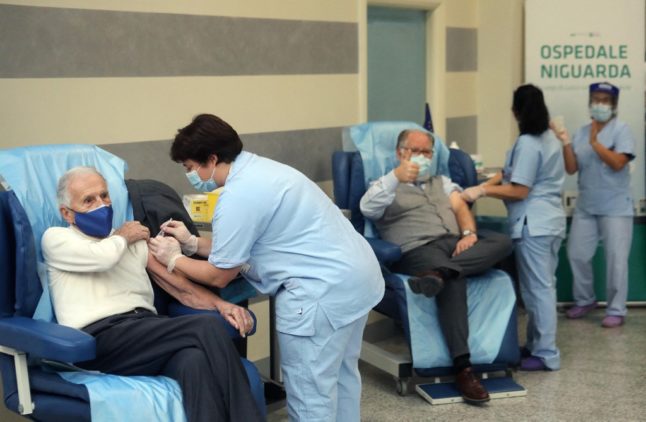The flagship Costa Smeralda left the northwestern Italian port of Savona on Saturday evening after being landbound since December 20th, when the Italian government banned cruises during the holiday season due to the coronavirus crisis.
Cruise tourism is now possible again – with safety protocols in place – as the country begins to gradually lift some restrictions.
“This cruise has a symbolic value for the recovery of Italy’s tourism sector, I absolutely had to be here,” said passenger Enrico Bergamini, a 35-year-old bank employee from Genoa.
READ ALSO:
- Summer rental boom: Italy reports surge in holiday bookings from the UK and US
- When will Italy relax the restrictions on international travel?
- ‘Green pass’: How Italy’s coronavirus immunity card works
The ship left port with around 1,500 passengers on board – a quarter of its full capacity.
All passengers and crew were first tested for coronavirus and mask-wearing will be mandatory throughout the trip.
The 1,300 crew had first observed a 14-day quarantine before reporting for duty.

The Italian voyage will last from three to seven days, depending on where it stops on the Italian coast — La Spezia, Civitavecchia, Naples, Messina or Cagliari.
The Costa Smeralda is also set to resume its week-long cruises in the western Mediterranean starting June 12th, with stops in Italy (Savona, Civitavecchia and Palermo), France (Marseille) and Spain (Barcelona and Palma de Mallorca).
Another ship, the Costa Luminosa, is scheduled to depart from Trieste on May 16th for a week-long cruise to Greece and Croatia.
Neither Costa nor its biggest Italian rival, MSC Cruises, have sailed from Venice since the pandemic first pushed Italy to restrict travel last spring.
To the relief of campaigners who have long tried to stop giant liners entering the fragile Venetian lagoon, cruise companies have switched their departures to the bigger ports of Genoa and Trieste.
READ ALSO: ‘New model’: How Florence and Venice plan to rebuild tourism after the coronavirus crisis
Raffaele d’Ambrosio, head of the French arm of Costa Cruises, said the “desire to set off again is very strong among our customers”.
“We receive several hundred bookings every day covering each month until the end of 2022,” he told AFP.

“Cruising, like tourism in general, is one of the sectors most affected by the crisis: 2021 will be a year of recovery and by early 2022 we will be waiting for a return to normality.”
The cruise industry has been hit hard by the pandemic, suffering a shortfall of $77 billion and cutting 518,000 jobs between mid-March and September alone last year, according to the Cruise Lines International Association (CLIA).
Before the pandemic, Italy’s 14.5-billion-euro cruise industry – Europe’s largest – supported nearly 53,000 jobs, according to the Cruise Lines International Association.
READ ALSO: Italy’s tourism industry reports €120 billion loss in 2020
“Cruises were enjoying major growth before the Covid pandemic and I am convinced they will flourish again after this sad break,” insisted Costa Croisieres president Mario Zanetti.
His firm returned to the ocean again last September, limiting calls to Italian ports, only to suspend operations again in December.



 Please whitelist us to continue reading.
Please whitelist us to continue reading.
Member comments